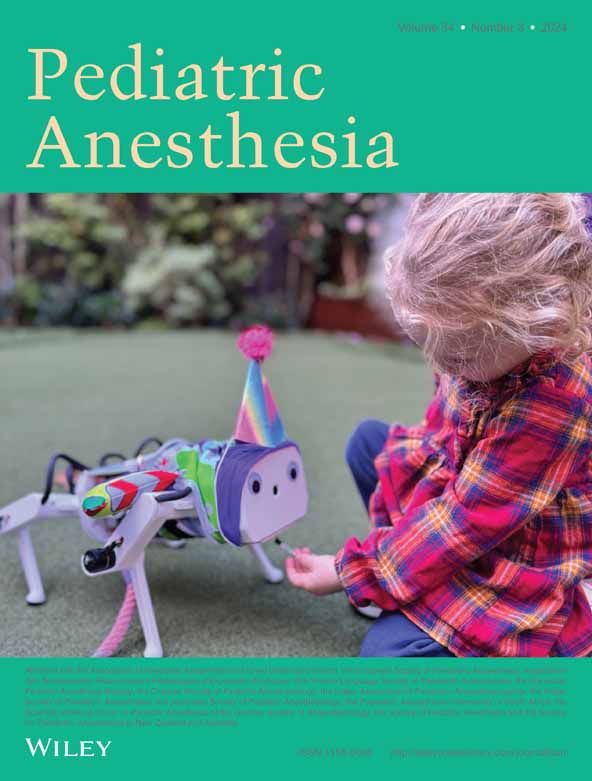Intravenous dexamethasone does not prolong the duration of pudendal nerve block in infants and children undergoing hypospadias surgery: A randomized clinical trial
Section Editor: George A Chalkiadis
Abstract
Background
The administration of intravenous dexamethasone increases the duration of neuraxial block and improves the quality of analgesia. However, little is known about these effects of dexamethasone on peripheral nerve blocks in children.
Aims
In this study, we aimed to investigate the benefit of intravenous dexamethasone for enhancing the effect of pudendal block on postoperative analgesia in children who underwent hypospadias surgery.
Methods
In total, 46 children aged 6–36 months who underwent hypospadias surgery were randomly allocated to either a control group (normal saline, group C) or dexamethasone group (0.5 mg/kg, group D). Pudendal block was performed before the surgery using 0.3 mL/kg of 0.225% ropivacaine on both sides. Parents were instructed to press the patient-controlled analgesia bolus button when their children's pain score was >4 points. The primary outcome measure was the time at which the first patient-controlled analgesia by proxy bolus dose was administered. The secondary outcome measures were pain score, number of patient-controlled analgesia administration by proxy bolus attempts, number of rescue analgesics required, total amount of fentanyl administered, and overall parental satisfaction.
Results
The time of first patient-controlled analgesia bolus administration by proxy was not different between the control and dexamethasone groups (5.6 [5.2, 8.8] h versus 6.5 [5.4, 8.1] h, hazard ratio 0.8, 95% confidence intervals 0.43 to 1.47, p = .46). There were no statistically significant differences among the secondary outcomes.
Conclusions
Administration of intravenous dexamethasone did not enhance the duration of pudendal nerve block in infants and children aged 6–36 months who underwent hypospadias surgery.
CONFLICT OF INTEREST STATEMENT
The authors declare no conflicts of interest.
Open Research
DATA AVAILABILITY STATEMENT
The data that support the findings of this study are available on request from the corresponding author. The data are not publicly available due to privacy or ethical restrictions.




